On a warm October evening, the Cali Botanic Garden – one of Colombia’s botanical gems and a proud BGCI member – set the scene for the much-anticipated launch of The Global Biodiversity Standard (TGBS) at COP-16. The event drew an enthusiastic group of over 50 esteemed guests, including representatives from biodiversity and restoration NGOs, government agencies, business, and finance, united in their commitment to biodiversity enhancement.
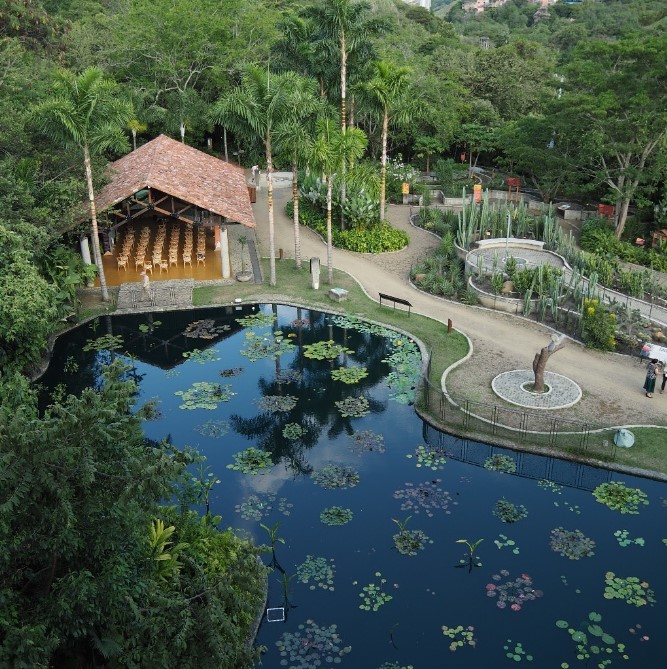
Guests were welcomed to a special Colombian fruit tasting that celebrated the country’s rich biodiversity, providing a fitting start to an event focused on global restoration and conservation goals. Dr. Leonardo Tavares Salgado, Director of Scientific Research at Rio de Janeiro Botanic Garden, began the program with an inspiring opening speech. Speaking on behalf of Brazil’s Ministry of Environment and Climate Change, Dr. Salgado underscored the importance of integrating biodiversity into land management practices throughout Brazil and Latin America. His words set a tone of urgency and possibility for regional biodiversity gains.
Dr. David Bartholomew, Manager of TGBS at BGCI, followed with an introduction to TGBS, detailing its certification process and benefits for biodiversity-rich landscapes worldwide. He highlighted how TGBS provides a rigorous framework to ensure projects meet essential ecological standards, thereby supporting ecosystems and communities alike. As TGBS Manager, Dr. Bartholomew spoke passionately about how the standard is designed to ensure that biodiversity-positive projects receive meaningful recognition and support.
The event’s panel discussion, led by Professor Peter Wyse Jackson, President of Missouri Botanical Garden, sparked dynamic dialogue on the potential of TGBS to influence global restoration efforts. The panellists included Gabriela Orihuela from Huarango Nature, the TGBS hub in Peru; Antonia Burchard-Levine from Ecosia, an early TGBS supporter; Alessandro Valentini, Lead for Innovative Finance for Nature at the World Economic Forum; and Carolle Alarcon, Executive Director of the Brazilian Coalition for Climate, Forests, and Agriculture. Each panellist offered insights from their regions and sector, illustrating how TGBS can drive biodiversity-focused outcomes through collaboration and innovation.
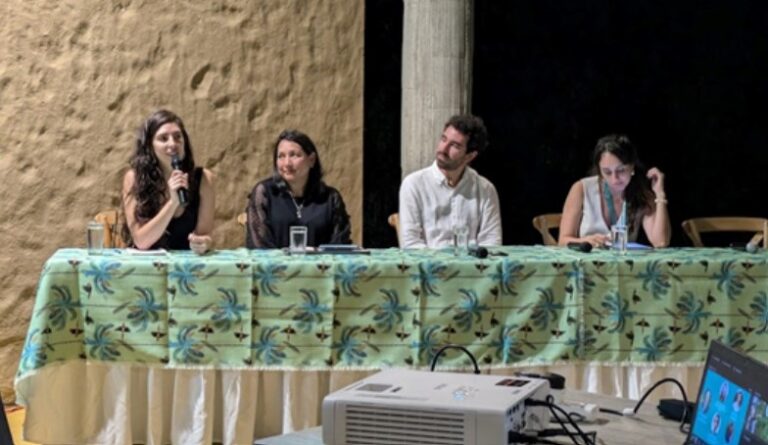
In a celebratory high point, Dr. Carly Cowell, Acting Secretary General of BGCI, presented the inaugural TGBS certifications. Seven sites from India, Hong Kong, Madagascar, and Kenya were welcomed as pioneers, each pledging to undergo TGBS assessment. Two sites received full certification: a Bolivian project by SICIREC and Ecosia, and a Colombian project by Impulso Verde and Reforest’Action. Finally, a special Advanced certificate was awarded to a project in Uganda led by the Jane Goodall Institute and Ecosia – an accomplishment that resonated deeply with the audience.
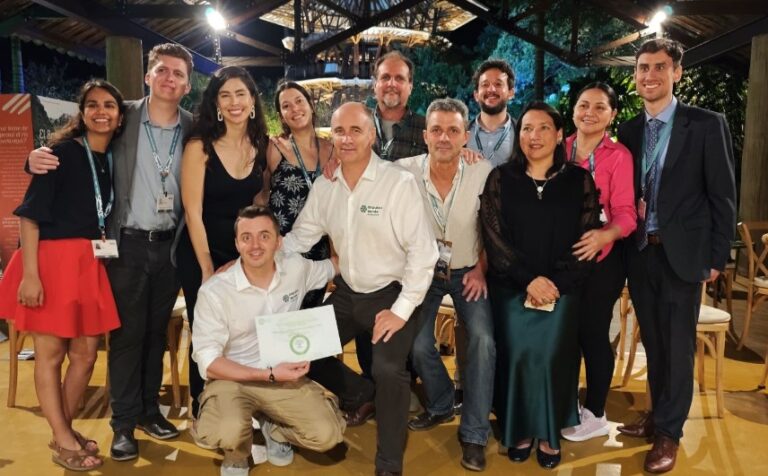
Reflecting on this achievement, Dame Jane Goodall, PhD, Founder of the Jane Goodall Institute and UN Messenger of Peace shared her excitement:
“It brings me great pride to know that our work along the Budongo and Bugoma corridor in Uganda in collaboration with JGI Uganda, JGI Austria, and Ecosia, is among the first in the world to receive advanced certification under The Global Biodiversity Standard. The Global Biodiversity Standard reminds us of our responsibility to protect our ecosystems, not just for our own survival, but for the future of every living creature with whom we share this planet. My hope is that many more organisations will adopt the measures laid out by the Standard and ensure we regenerate the planet for future generations.”
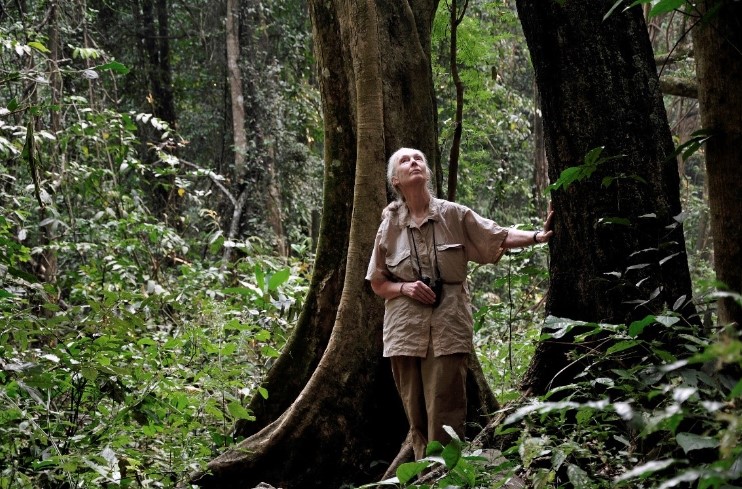
Dr. Gemma Harper, OBE, CEO of the Joint Nature Conservation Committee (JNCC), closed the event with an empowering address. Her words emphasised the inclusive approach of TGBS and the significant impact it can have across sectors, if initiatives commit to its values. As she pointed out, TGBS represents a shift towards unified standards that prioritise biodiversity as much as climate resilience.
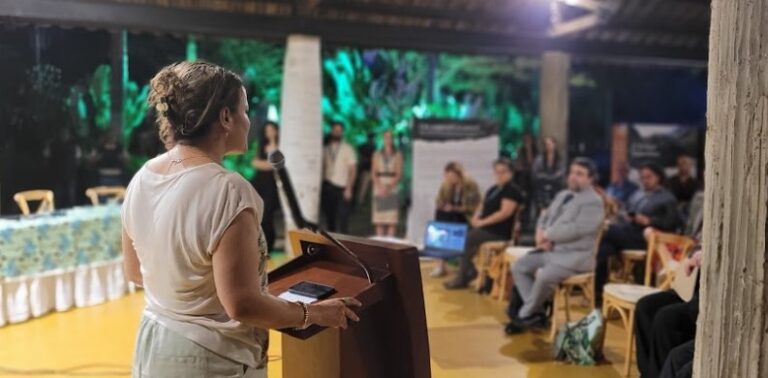
The evening ended with a drinks and canapé reception in the stunning gardens, allowing for rich conversations and reflections. The launch event marked a new chapter for The Global Biodiversity Standard, laying a foundation for continued collaboration, growth, and positive biodiversity outcomes worldwide.
As we look forward, the TGBS team extends heartfelt gratitude to everyone who joined us in Cali and to the broader community of supporters who make this work possible. Together, we are creating a world where biodiversity is recognised, valued, and restored, one certified site at a time.
You can also watch Dr Gemma Harper OBE’s closing address in full. Enjoy!
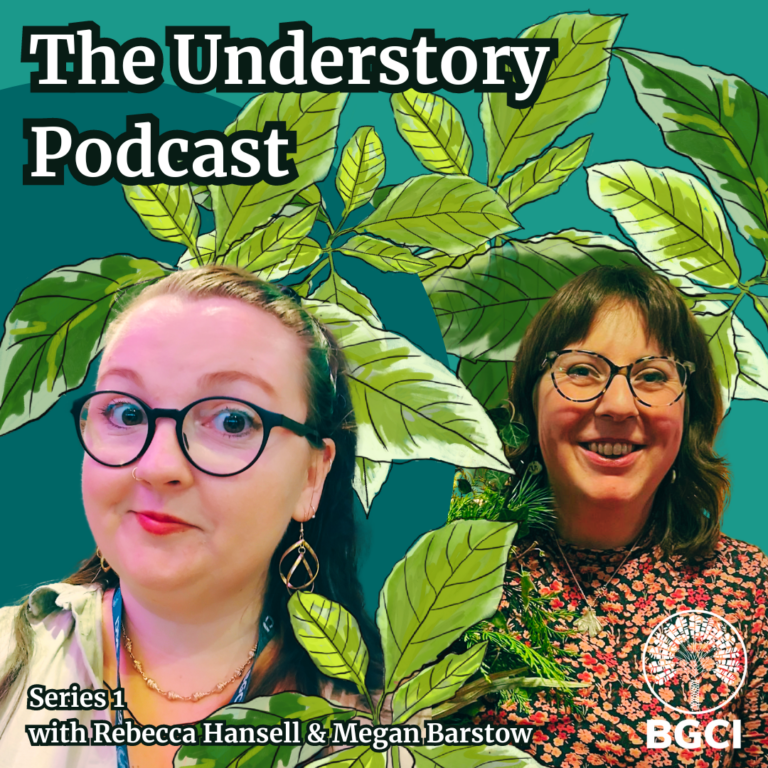
Did you see that BGCI have launched their first podcast?
This first series covered all the excitement that happened at COP-16.
In an episode focused on TGBS, the hosts (Rebecca Hansell & Megan Barstow) interviewed David Bartholomew about the Standard and the launch at COP-16.
Listen to this episode and other interviews from within the conservation sector now.


